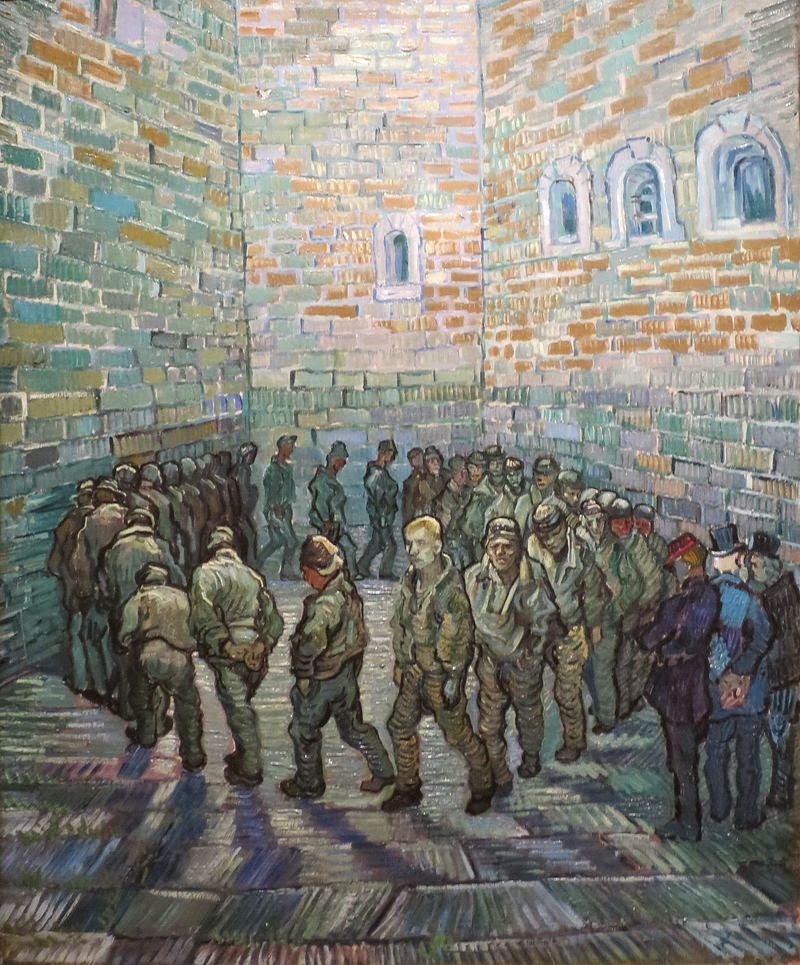“Primăvara,
o pasăre în colivie ştie foarte bine că este ceva la care se pricepe; simte cu
claritate că este ceva de făcut, dar n-o poate face; ceea ce nu-şi poate aminti
cu claritate şi are idei vagi despre aceasta şi îşi spune:”ceilalti îşi
construiesc cuiburile lor şi-şi nasc puii lor şi îi cresc” şi îşi izbeşte capul
de gratiile coliviei. Şi colivia este mereu acolo şi pasărea este nebună de suferinţă.
“Priviţi, este un leneş”, spune o altă pasăre călătoare – tipul ăsta este un
fel de om fără ocupaţie. Şi totuşi prizoniera trăieşte, nu moare; nimic din ce
se petrece înlăuntru nu transpare afară, este sănătoasă, este mai degrabă voioasă
în lumina soarelui. Dar apoi vine anotimpul migraţiei. Un pic de melancolie –
dar, spune copilul care are grijă de pasăre, are tot ce-i trebuie în colivie,
până la urmă! – dar ea priveşte cerul de afară, încărcat cu nori de furtună, şi
în sine simte o revoltă împotriva destinului. Sunt închisă într-o colivie, sunt
închisă într-o colivie, aşa că nu-mi lipseşte nimic, nebunilor! Eu am tot ce-mi
trebuie! Ah,Doamne, libertate,să fii o pasăre ca toate celelalte! Un om leneş
ca acesta seamănă cu o pasăre leneşă ca aceasta.Şi este deseori imposibil
pentru oameni să facă ceva, prizonieri în nu ştiu ce fel de oribilă, oribilă,
foarte oribilă colivie, Poate nu eşti în stare mereu să spui ce te ţine captiv,
ce te întemniţează, ce pare să te îngroape, şi totuşi simţi nu ştiu ce fel de
gratii, nu ştiu ce fel de porti şi ziduri. Sunt toate acestea imaginare,
fantezii? Nu cred; şi apoi te întrebi singur, dragă Doamne, o să dureze mult, o
să ţină mereu, întreaga eternitate?”(Scrisoare a lui Vincent van Gogh către
fratele său Theo, 22 iunie 1880)
"In the springtime
a bird in a cage knows very well that there’s something he’d be good for; he
feels very clearly that there’s something to be done but he can’t do it; what
it is he can’t clearly remember, and he has vague ideas and says to himself,
‘the others are building their nests and making their little ones and raising
the brood’, and he bangs his head against the bars of his cage. And then the
cage stays there and the bird is mad with suffering. ‘Look, there’s an idler’,
says another passing bird — that fellow’s a sort of man of leisure. And yet the
prisoner lives and doesn’t die; nothing of what’s going on within shows
outside, he’s in good health, he’s rather cheerful in the sunshine. But then
comes the season of migration. A bout of melancholy — but, say the children who
look after him, he’s got everything that he needs in his cage, after all — but
he looks at the sky outside, heavy with storm clouds, and within himself feels
a rebellion against fate. I’m in a cage, I’m in a cage, and so I lack for
nothing, you fools! Me, I have everything I need! Ah, for pity’s sake, freedom,
to be a bird like other birds! An idle
man like that resembles an idle bird like that. And
it’s often impossible for men to do anything, prisoners in I don’t know what
kind of horrible, horrible, very horrible cage. You may not always be able to say what it is that confines, that
immures, that seems to bury, and yet you feel I know not what bars, I know not
what gates — walls. Is all that imaginary, a fantasy? I don’t think so; and then
you ask yourself, Dear God, is this for long, is this for ever, is this for
eternity?"


Niciun comentariu:
Trimiteți un comentariu